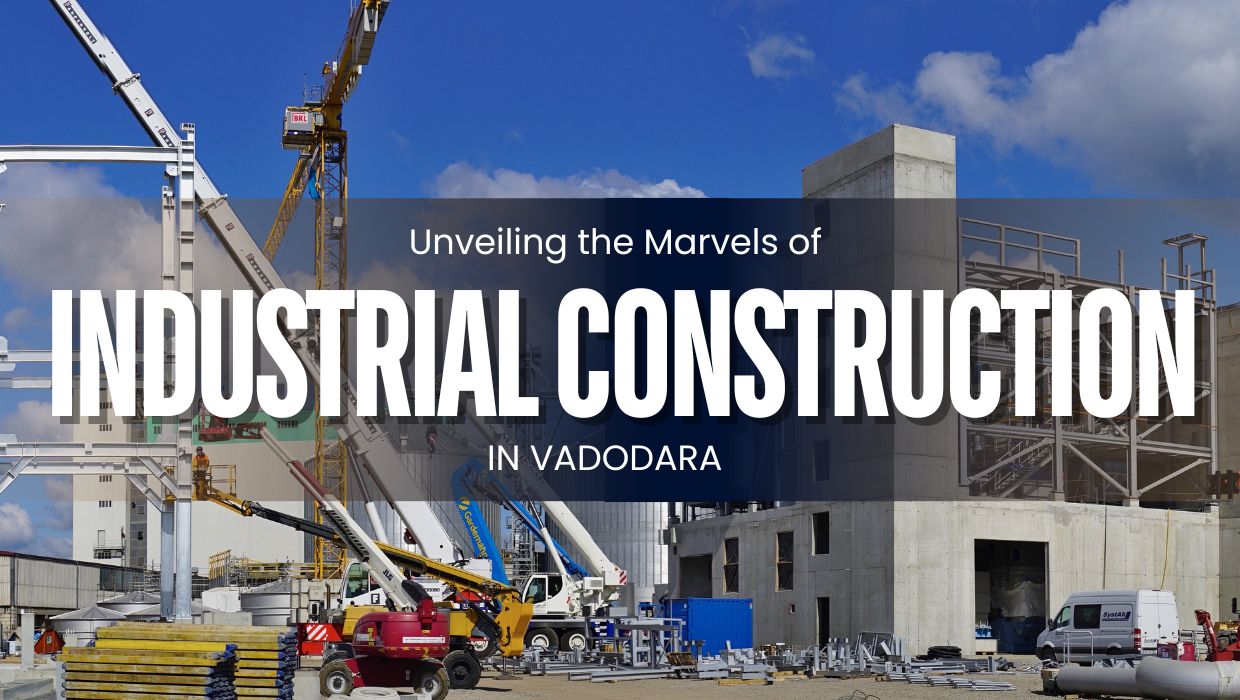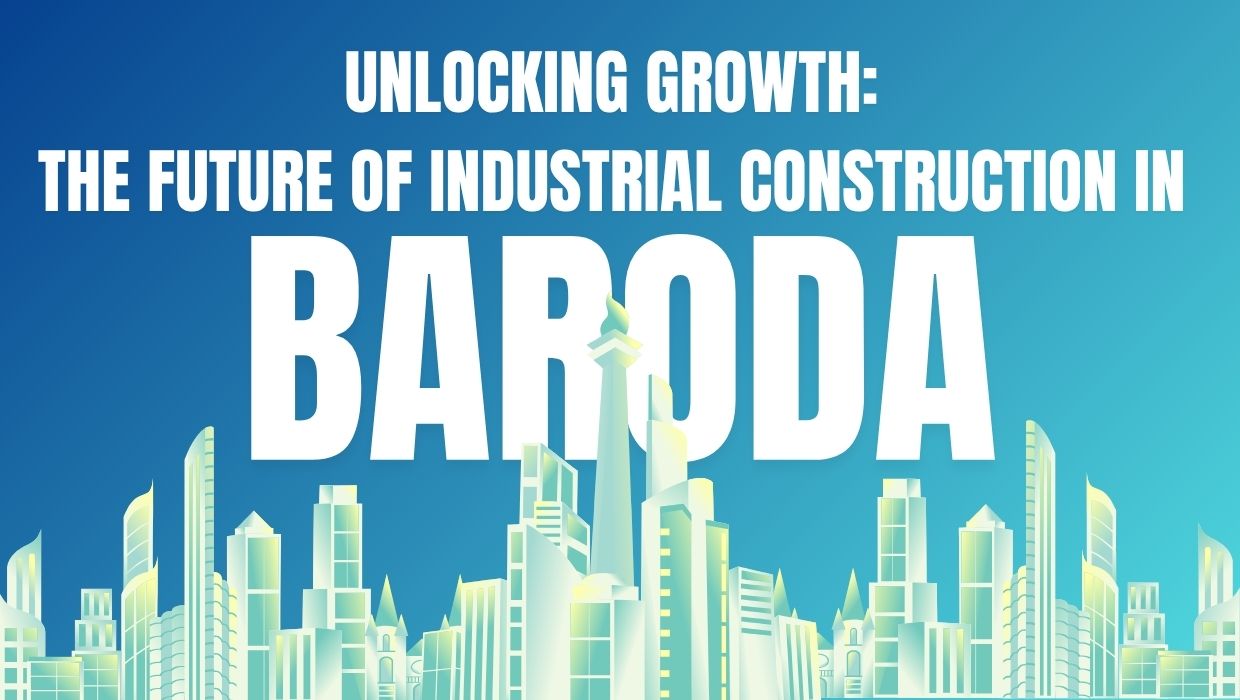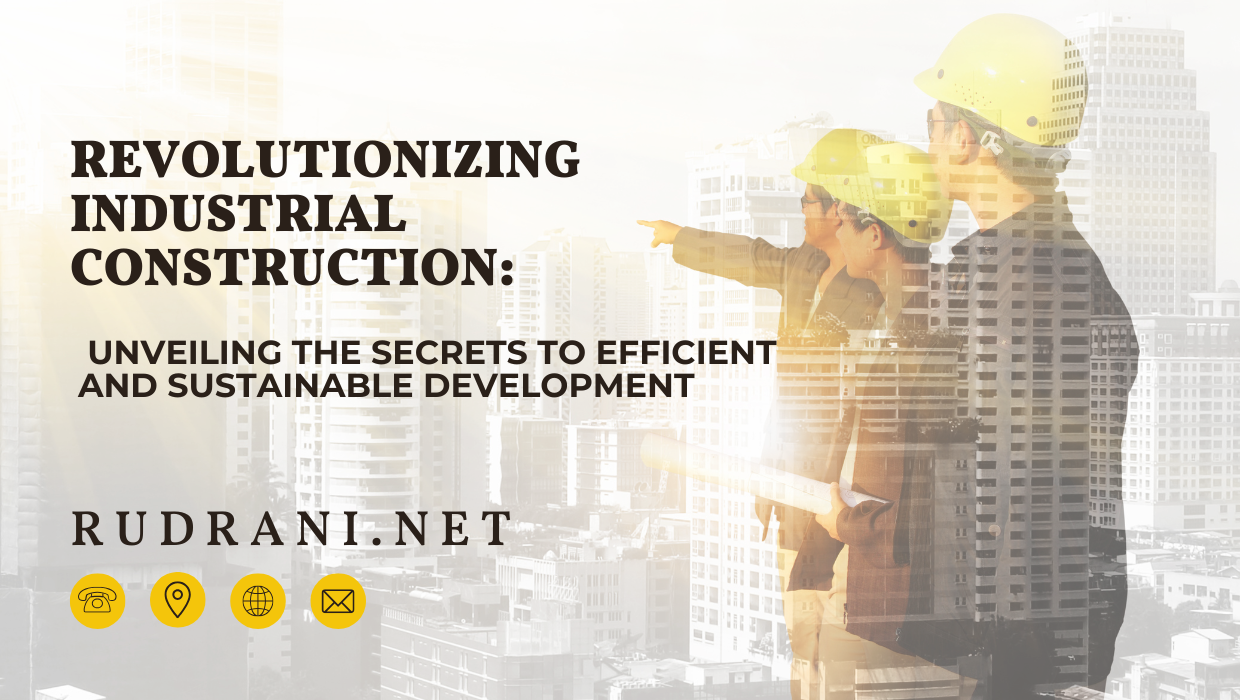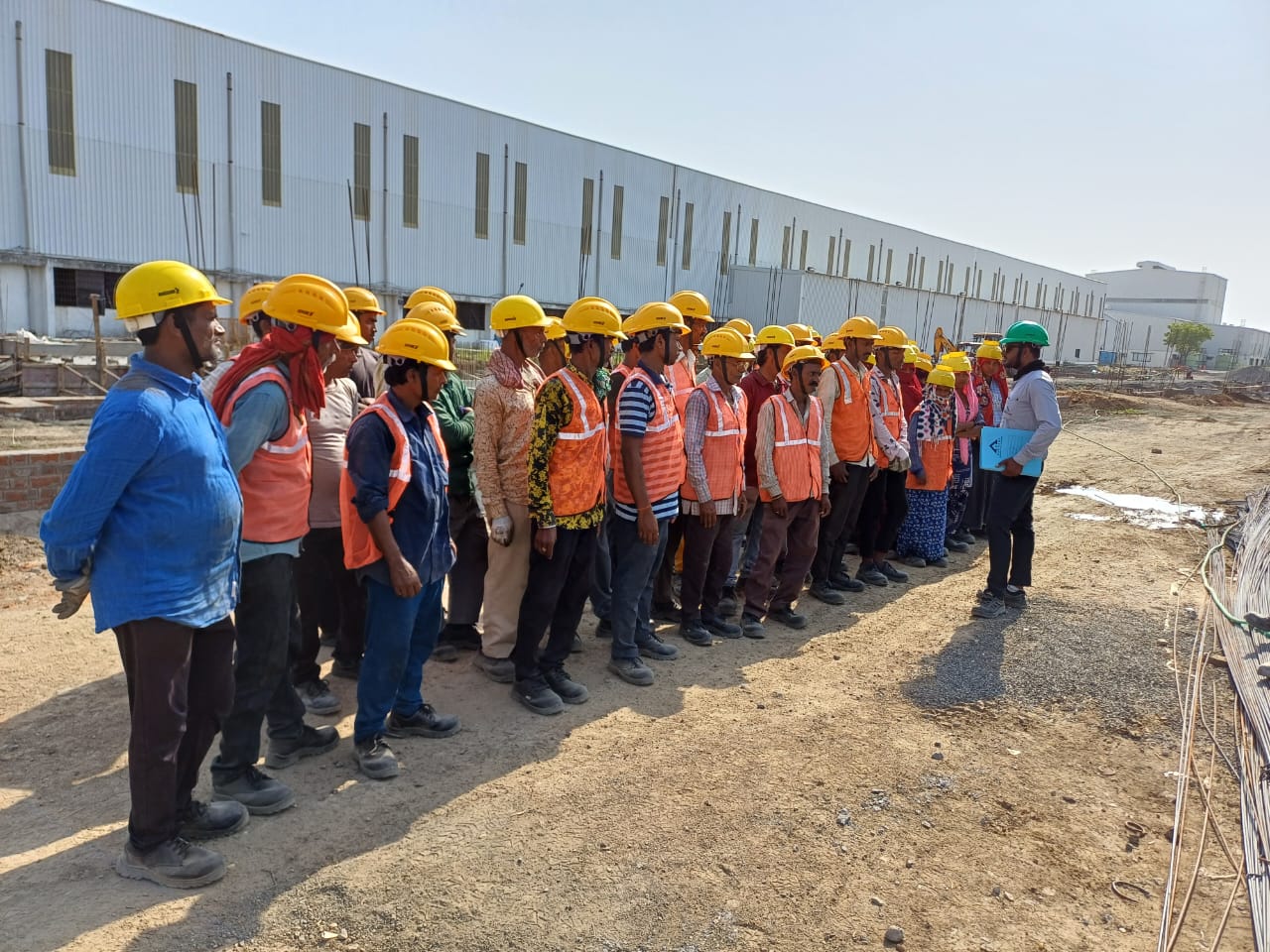
In the heart of Vadodara lies a thriving hub of industrial construction, where innovation meets tradition to shape the landscape of tomorrow. Brick by brick, the marvels of architectural excellence unfold, embodying the vision of a progressive future for the city. From towering structures to intricate infrastructure, the industrial construction in Vadodara stands as a testament to human ingenuity and craftsmanship.
Every edifice tells a story of dedication, precision, and passion that resonates through the bustling streets, echoing the spirit of progress and development. As the city evolves, so do its buildings, reflecting the changing times and embracing modernity without forsaking its rich heritage. Join us on a journey through the architectural wonders of Vadodara, where each building is not just a structure but a symbol of ambition and innovation.
Importance of Industrial Construction in Vadodara
Industrial construction plays a pivotal role in the economic development of Vadodara, serving as the backbone of the city’s growth. As a major industrial hub, Vadodara attracts a plethora of businesses and investments, which in turn necessitates the construction of diverse industrial facilities. These facilities not only provide jobs but also contribute significantly to the local and national economy. The multiplier effect of industrial construction means that every new project can lead to further investments and developments in the region, fostering an environment of continuous growth and opportunity.
Moreover, the industrial landscape of Vadodara is crucial for enhancing the city’s infrastructure. Improved roads, utilities, and transportation networks are often byproducts of industrial construction projects. As factories and plants are established, the demand for better access and logistics increases, prompting upgrades to existing infrastructure. This interconnectedness between industrial construction and infrastructure development is vital, as it ensures that the city can support its growing industrial base while maintaining efficiency and safety.
Additionally, industrial construction in Vadodara contributes to the technological advancement of the region. As new facilities emerge, they often incorporate the latest in construction techniques, machinery, and materials, setting a benchmark for quality and innovation. This not only elevates the standard of construction in the area but also encourages local firms to adopt modern practices, thereby enhancing overall productivity. The emphasis on innovation ensures that Vadodara remains competitive in the global market, attracting further investment and skilled labor to the area.
Key Industrial Construction Projects in Vadodara
Vadodara boasts several key industrial construction projects that highlight its growing prominence as an industrial center. One notable project is the Gujarat Industrial Development Corporation (GIDC) estate, which has been instrumental in providing the necessary infrastructure for various industries, including manufacturing, textiles, and pharmaceuticals. This estate has attracted numerous companies, both domestic and international, establishing Vadodara as a critical manufacturing hub.
Another significant project is the Dahej Industrial Estate, which focuses on heavy industries and petrochemicals. This expansive area not only houses large manufacturing units but also supports ancillary industries and services. The strategic location near the coast facilitates easy access to shipping routes, making it an attractive proposition for companies looking to export goods internationally. The ongoing development in this estate underscores the commitment to enhancing the industrial framework of Vadodara.
Additionally, the rapid growth of the information technology sector in Vadodara has led to the construction of several IT parks and innovation centers. These facilities not only provide modern office spaces but also foster collaboration and innovation among tech companies. By creating an ecosystem that nurtures startups and established firms alike, Vadodara positions itself as a key player in the technology landscape, further diversifying its industrial portfolio.
Advancements in Industrial Construction Technologies
The industrial construction sector in Vadodara has witnessed remarkable advancements in technology that enhance efficiency, safety, and sustainability. One of the most significant developments is the adoption of Building Information Modeling (BIM). This technology allows for the creation of digital representations of physical and functional characteristics of places. By utilizing BIM, construction firms can visualize the entire project lifecycle, from planning and design to construction and maintenance, leading to improved accuracy and reduced costs.
Furthermore, the integration of automation and robotics in construction processes is revolutionizing how projects are executed. Automated machinery can perform tasks such as bricklaying, concrete pouring, and even project monitoring. This not only speeds up construction timelines but also minimizes human error, ensuring higher quality standards. In Vadodara, several companies have started incorporating these advanced technologies, paving the way for a more efficient construction environment.
Another notable advancement is the use of sustainable construction materials and techniques. The rise in environmental consciousness has prompted construction firms to seek eco-friendly alternatives to traditional building materials. Innovations such as recycled steel, bamboo, and high-performance insulation materials are becoming increasingly common in industrial projects. This shift not only reduces the carbon footprint of buildings but also promotes long-term energy savings, aligning with global sustainability goals.
Sustainable Practices in Industrial Construction
Sustainability is becoming a cornerstone of industrial construction in Vadodara, reflecting a growing awareness of environmental issues among builders and developers. The implementation of green building practices is on the rise, driven by both regulatory requirements and market demand. Sustainable construction practices encompass various strategies, from energy-efficient designs to the use of renewable resources. For instance, many new industrial facilities are being designed with energy-efficient systems such as solar panels and advanced HVAC systems that reduce energy consumption significantly.
Water conservation is another critical aspect of sustainable industrial construction. Builders are increasingly incorporating rainwater harvesting systems and greywater recycling into their designs. These systems not only help in conserving water but also reduce the overall operational costs of industrial facilities. Moreover, the use of permeable materials in landscaping and paving contributes to better water management, mitigating the risk of flooding and enhancing the urban ecosystem.
The promotion of sustainable waste management practices is also gaining traction in Vadodara’s industrial construction sector. Construction companies are now implementing strategies to minimize waste generation, such as reusing materials and recycling debris. These practices not only contribute to environmental sustainability but also reduce costs associated with waste disposal. By adopting a circular economy approach, the construction industry in Vadodara is setting a precedent for responsible building practices that other regions may follow.
Challenges Faced in Industrial Construction in Vadodara
Despite the numerous advancements and opportunities in industrial construction, Vadodara faces its fair share of challenges. One significant issue is the scarcity of skilled labor. As the demand for industrial construction projects grows, the need for qualified workers with specialized skills has become increasingly pressing. Many construction firms struggle to find adequate labor, leading to project delays and increased costs. Addressing this labor shortage requires a concerted effort from educational institutions and industry stakeholders to provide training and skills development programs.
Another challenge is the regulatory landscape surrounding industrial construction. Navigating the complex web of local, state, and national regulations can be daunting for construction companies. Compliance with environmental regulations, zoning laws, and safety standards is essential but can also lead to project delays and increased costs. Ensuring that all stakeholders are informed and adhere to these regulations is crucial for the smooth execution of industrial projects.
Additionally, the fluctuating costs of materials pose a significant challenge to the industrial construction sector. Prices for raw materials such as steel, cement, and timber can be volatile, influenced by global market trends and supply chain disruptions. This unpredictability can hamper project budgets and timelines, making it essential for construction firms to adopt strategic procurement practices and build flexibility into their financial planning.
Future Trends in Industrial Construction
The future of industrial construction in Vadodara is poised for transformative changes driven by technology and innovation. One notable trend is the increasing use of prefabrication and modular construction techniques. This approach allows for components to be manufactured off-site and assembled on-site, reducing construction time and minimizing waste. As companies seek to enhance efficiency and reduce costs, the popularity of prefabricated structures is expected to grow significantly in the coming years.
Moreover, the integration of smart technology into industrial buildings is becoming more prevalent. Smart buildings equipped with IoT devices can monitor and control various systems such as lighting, HVAC, and security in real-time. This not only enhances operational efficiency but also improves safety and comfort for occupants. As Vadodara’s industrial landscape evolves, the incorporation of smart technologies will likely become a standard practice, driving further innovation within the sector.
Sustainability will continue to be a driving force in shaping the future of industrial construction. As global awareness of climate change intensifies, the demand for green buildings will only increase. Construction firms in Vadodara will need to prioritize sustainable practices, including energy-efficient designs, the use of eco-friendly materials, and waste reduction strategies. By embracing these trends, the industrial construction sector can contribute to a more sustainable future while also meeting the growing expectations of clients and regulators.
Hiring the Right Industrial Construction Company in Vadodara
Choosing the right industrial construction company is critical for the success of any project in Vadodara. Organizations must thoroughly evaluate potential contractors based on their experience, reputation, and expertise in handling similar projects. It is vital to look for companies that have a proven track record of delivering quality work on time and within budget. Conducting background checks, reviewing past projects, and seeking references can provide valuable insights into a contractor’s capabilities.
Another essential factor to consider is the construction company’s understanding of local regulations and compliance requirements. Given the complexities of building codes and environmental standards in Vadodara, partnering with a contractor who has an in-depth knowledge of these regulations can streamline the permit process and reduce the risk of costly delays. Engaging a company with established relationships with local authorities can also facilitate smoother communication and coordination throughout the project.
Lastly, communication and collaboration are key components in the construction process. The ideal construction company should prioritize transparent communication with clients, providing regular updates and being responsive to inquiries. A collaborative approach ensures that any issues are addressed promptly, fostering a positive working relationship that can contribute to the project’s overall success. By carefully selecting the right industrial construction company, businesses can set the foundation for a successful and efficient construction journey.
Industrial Construction Regulations and Compliance
Understanding the regulatory framework governing industrial construction in Vadodara is essential for any builder or developer. Various local, state, and national regulations must be adhered to, including those related to building codes, environmental protection, and occupational safety. Compliance with these regulations is crucial not only for legal reasons but also for ensuring the safety and functionality of the constructed facilities.
Building permits are a fundamental requirement before commencing any construction project. The process involves submitting detailed plans to the local authorities for review and approval. These plans must demonstrate compliance with zoning laws, safety standards, and environmental regulations. Developers must be prepared for potential revisions and adjustments to their plans based on feedback from regulatory bodies, as this can significantly impact project timelines.
Moreover, environmental regulations play a prominent role in industrial construction. Projects must undergo environmental impact assessments to evaluate their potential effects on the surrounding ecosystem. This process helps identify risks and outline mitigation measures to minimize environmental harm. Construction companies in Vadodara must stay informed about evolving regulations and best practices to ensure compliance and contribute to sustainable development in the region.
Conclusion: Shaping the Industrial Landscape of Vadodara
The industrial construction sector in Vadodara is a dynamic and essential component of the city’s growth narrative. With its rich history and commitment to innovation, Vadodara continues to evolve as a prominent industrial hub. The importance of industrial construction transcends mere infrastructure development; it shapes the economy, provides employment opportunities, and enhances the quality of life for its residents.
Key projects, advancements in technology, and sustainable practices are paving the way for a more resilient and forward-thinking industrial landscape. As the city embraces modern construction methods and prioritizes sustainability, it can position itself as a leader in the industrial sector. This ongoing transformation not only attracts investment but also fosters a sense of community and pride among its residents.
In conclusion, the future of industrial construction in Vadodara is bright, driven by innovation, sustainability, and a commitment to excellence. As the city builds the future brick by brick, the collaboration between stakeholders, including government, industry, and local communities, will be crucial in shaping a prosperous and sustainable industrial landscape for generations to come.













